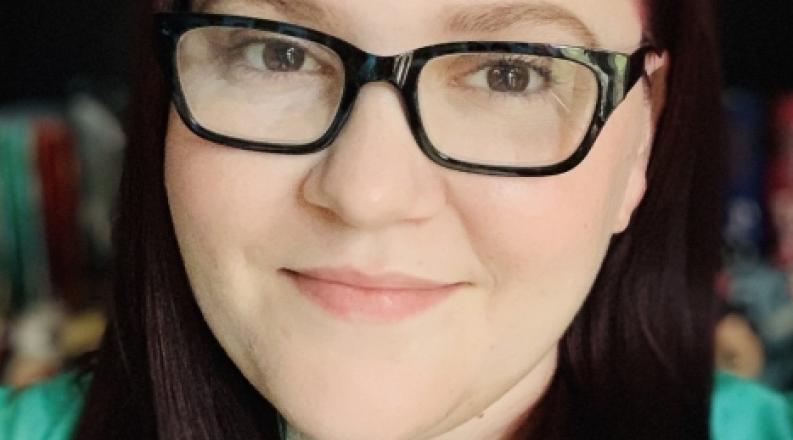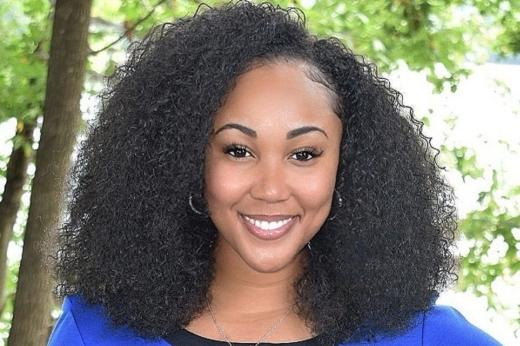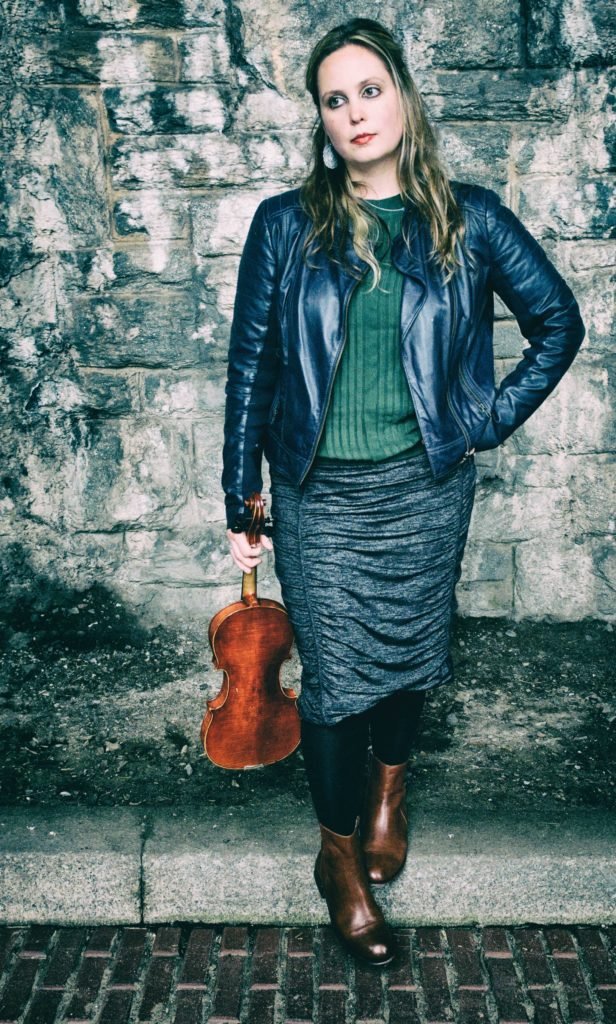By Brittany Haslem and Amber Kennedy
Jennifer McLawhorn never liked scary movies as a kid, but she's now made horror films the focus of her graduate work.
The second-year graduate student with the Institute for the Humanities at Old Dominion University is researching social anxieties concerning gender within American horror texts.
For McLawhorn, the turning point came in her twenties when she watched "American Horror Story" and the first "Scream."
"'Scream' was really pivotal for me. That's become my favorite scary movie of all time," McLawhorn said.
"Scream" presented a fresh take on the genre, employing traditional scare tactics even as characters winked and nodded at common horror film tropes. After that revelatory first viewing, McLawhorn began working her way through the slasher films of the seventies through the nineties.
She was intrigued by the way horror films can provoke a physical response.
"You have people who saw 'The Exorcist' and had a really physical body response - they were vomiting," she said. "There's something about horror that forces you to have a reaction ... it's some kind of catharsis."
McLawhorn's research focuses on social anxieties concerning gender within American horror texts. For her thesis, she is exploring three classic films in the genre: "Halloween" (1978), "Sleepaway Camp" (1983), and "Scream" (1996), looking at a specific social anxiety in each film and how one of the characters embodies that anxiety through a well-known literary figure-type.
Currently, she has Michael Myers, the antagonist of the "Halloween" films, under her lens. "I'm kind of viewing him as a Neo-Übermensch character and how he represents those traditional patriarchal values within a decade where we have the sexual liberation and he's going against that," McLawhorn said.
Philosopher Friedrich Nietzsche coined "übermensch" as an ideal superior man of the future who can create and impose his own values. In the film, the prototypically heteronormative Myers targets promiscuous teens, but his primary obsession - Laurie Strode, played by Jamie Lee Curtis - is a virginal heroine. His depiction was a way film audiences could "negotiate their anxieties about sexual liberation," McLawhorn said.
The flexibility to combine gender studies with popular culture is what drew McLawhorn to the humanities program after completing her bachelor's degree in English literature at ODU.
"People have this idea of academia - the dusty library, old books - but, you really can do whatever you want to do," she said. "The world is your oyster in this program."
McLawhorn hopes to continue her gender studies research by expanding into other mediums. "I'm really excited to see where I can take this in the future," she said. "I don't know if I will stick with films. I'm kind of thinking for a Ph.D. program I want to do the same thing, but within gothic horror or southern gothic literature."
McLawhorn recommends two films to watch this Halloween weekend: the recent remake of "Candyman" and the 2007 horror comedy "Trick 'r Treat."
"I think remakes can be quite intriguing, and it's always interesting to see what kind of spin directors can put on horror classics," she said. The other film is the perfect movie to watch because, "the film's 'monster' has one simple rule: don't blow out the jack-o'-lantern before midnight on Halloween."






